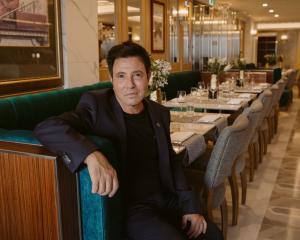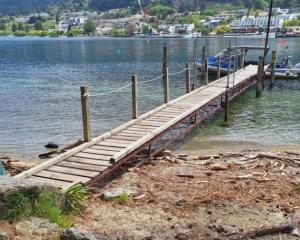Chamber of Commerce chief executive Ann Lockhart appealed to the Queenstown Lakes District Council during its 10-year plan submissions hearing to support the chamber's proposal that a separate board be set up to govern the "key areas of public interest in tourism and economic development" in Queenstown.
The Queenstown Tourism Board/Economic Development Unit would be appointed by Government and might also include the functions of Queenstown Airport and Destination Queenstown, she said.
The council-controlled organisation (CCO) model used to run council subsidiary companies was "flawed" and should be re-examined, she said in her submission.
She called for the accounts of the organisations to be opened for the community to see the profit and loss of each body.
"It is of some concern that while CCOs were originally set up on a not-for-profit model that there are increasing examples of QLDC and its subsidiaries competing directly with private enterprise, assumedly in order to minimise losses in some of the CCOs," she said.
Lakes Leisure was an example of this with the recent decision to fit out a gym facility.
It got $780,000 from the council to develop a gym at Alpine Aqualand despite facing a projected $77,000 funding shortfall in its first year of operation.
"This is in direct contradiction to what the community agreed to at the time the events centre was set up," Mrs Lockhart said.
"The chamber is of the opinion that the key strategic issues of tourism and economic development for the Queenstown region are not adequately covered by the existing governing bodies."
Queenstown business people could make a valuable contribution to the region's strategic issues rather than employing "expensive consultants".
A priority for the board would be to investigate alternative funding mechanisms for its tourism component, which could include a tourist sales tax, departure tax or GST spent by visitors, she said.
Chamber president Alastair Porter said the current structure was "flawed" and questioned how many boards the town could afford.
He said a more cost-efficient structure would the amalgamation of existing boards into one "super board" of top business people.
People dealing with big business issues should have good business capabilities and skills, he said.
He said the funding mechanism for Destination Queenstown was also flawed - money needed to come from tourists, not ratepayers.
"Individual organisations within Queenstown do good work, but Queenstown tourism and economic development could benefit from more integrated decision making," he said.
The resort's small ratepayer base could not sustain the infrastructure required for the peak visitor numbers.
He said the logical source of alternative funding was tourist taxes.
The chamber was preparing a proposal to be presented to the Government in the next couple of months, he said.
However, Queenstown Lakes Mayor Clive Geddes said the current structure was producing results for the community.
"I don't believe council's current model of CCOs is dysfunctional. There is no case to . . . change the structure we have."
The current model was the result of a two-year investigation and widespread public consultation and the suggestion that the boards of council-controlled organisations lacked business experience was "ludicrous".
Destination Queenstown chief executive Stephen Pahl said he had not heard about the chamber's proposal until told by the Otago Daily Times.
He declined to comment until he discussed the issue with the board.












